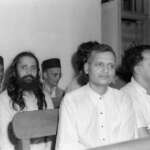Share This Article
A Brief Introduction About Gandhi Ji & His Struggle for Indian Independence
Mohandas Karamchand Gandhi, also referred to as Mahatma Gandhi was birthed on October 2, 1869 in Porbandar India. As a youngster, he was a little bit of an unwilling one however had a propensity for knowing. He researched regulation in London together with later on operated in South Africa, where he dealt with discrimination firsthand. This experience lit a fire in him for defending improbity.
Currently allows discuss his access right into the Indian liberty battle. Gandhi returned to India in 1915 and also quickly dived right into the liberty activity. He thought in nonviolent civil disobedience, which generally indicates defending what’s right without considering physical violence. This became his characteristic design.
Yet hey, every coin has two sides. Gandhi had some clashes with Vinayak Damodar Savarkar that leaned in the direction of a much more extreme strategy together with Subhas Chandra Bose, that had various suggestions on just how to lead the nation to self-reliance. It resembled a pleasant competitors of ideologies.
However Gandhi’s life was shortened on January 30 1948, when he was killed by Nathuram Godse that differed with Gandhi’s sights. Godse thought in an extra hostile strategy in the direction of accomplishing Indian freedom which clashed with Gandhi’s approach of nonviolence.
Mentioning Godse he created a publication labelled “Why I Killed Gandhi!” In it, he detailed his factors for eliminating Gandhi mentioning ideological distinctions and also his stress with Gandhi’s approaches. Gandhi’s tradition survives on as a sign of tranquility, durability as well as the power of nonviolent resistance.
Here’s my Questions…
Question No. 1 Regarding the Experiment of Celibacy... I assume you're familiar with it. Do you have any explanation? Would you allow an elderly person to conduct such an experiment with you? Context: Gandhi conducted his ‘Experiment with Truth’, which included celibacy, as part of his spiritual and moral development. It occurred during the early 1900s.
Question No. 2On the death of SC Bose, he said, "He was a good leader but misguided." Is it fair to characterize someone who actually weakened the British by building India's First Freedom Army in this way? Context: Subhas Chandra Bose, a prominent freedom fighter, died in a controversial plane crash in August 1945, during World War II.
Question No. 3Why was he the only one unconditionally released from jail multiple times, while other freedom fighters were not? Context: Gandhi’s frequent releases from jail without conditions were due to his political stature and the British government’s efforts to avoid unrest and maintain a semblance of stability in India during the freedom struggle. These releases occurred throughout the early to mid-20th century.
Question No. 4Why did he force Nehru & Patel to give 55 Cr to Pakistan, even going on a fast for it? Nehru & Patel were against it, yet it was done, leading to a food crisis in India later. Context: This incident refers to the allocation of funds to Pakistan by the Indian government in the aftermath of partition in 1947, during which Gandhi went on a fast to protest against communal violence and to advocate for unity between Hindus and Muslims.
Question No. 5Why did Gandhi ji send Indian soldiers to fight on the British side in WW1? Isn't that a form of violence? Shouldn't he have given the British the same lectures he gave Indian Freedom Fighters? Context: Gandhi’s support for the British during World War I, despite his opposition to violence, was based on his belief that Indian participation in the war would lead to greater political concessions from the British government. This decision occurred in the early 20th century.
My Last 2 Most Debatable Questions..
Why didn’t Gandhi ji stage any fast or protest in support of the Hon. Bhagat Singh, Raj Guru & Sukhdev case?
[Even Lord Erwin stated that when I met Gandhi during the Gandhi-Erwin pact (1931), I was convinced that he would raise the issue of Bhagat Singh, but he didn't bring it up. In the end, I asked him, "What's your take on the Bhagat Singh, Raj Guru & Sukhdev case?" He responded, "It's a matter of law and order; I will not interfere."]
Opinion QuestionPut your hand on your heart and ask yourself, "Will somebody vacate your country just because one old man is sitting on a fast?" Context: Gandhi often used fasting as a form of nonviolent protest to mobilize public opinion and pressure British authorities. This question reflects skepticism about the effectiveness of such methods in achieving political goals.
Gandhi’s idealism in the face of the complexities and realities of human nature, His idealistic thinking was amazing, but people are not always idealistic, and they never have been, not even during the time of Gautam Buddha or Lord Ram.
My Opinion on Ideology of M.K Gandhi

